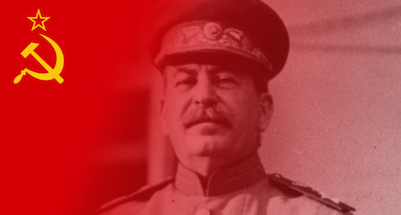It was to determine the perceptions of Stalin in Russia and three other previously Soviet-occupied countries of Georgia, Armenia and Azerbaijan, all in the South Caucasus.
In Georgia, some 45% of the respondents held a positive view of Stalin. Many explain that Stalin still holds the title of the most famous (also infamous) Georgian. One would say he was a powerful nationalist symbol. Amongst Armenian respondents 25% felt the same way as did 21% of the Azerbaijani respondents.
(Just recently the city of Gori, in Georgia, where Stalin was born in 1878, decided to return Stalin's statue to the front of the local museum. It's said that residents of Gori especially, are proud of their native son in spite of his general vilification internationally. In 2010, then president Mihkeil Saakashvili, ordered the statue's removal in the darkness of night and he was also currently critical of its possible return. The ministry of culture also distanced itself from the city's decision. The statue had stood in the city's main square since 1952.)
Of the three non-Russian countries surveyed, only Azberbaijan seems to have placed Stalin as an irrelevant topic. In fact an average 22% stated they had no idea who Stalin actually was; amongst youth this group reached 45%.
In the Carnegie survey conducted by Moscow's respected Levada Centre, 42% of Russians considered Stalin to be the public figure who has had the most amount of influence on world history. This is a stark contrast to the 12% who answered similarly in 1989. Of the Russians surveyed this time 28% indicated a positive opinion about Stalin. Many experts point out that the results represent a full-blown resurgence of Stalin's popularity in Russia over the past 25 years or since the collapse of the Soviet Union.
In contrast, Lenin's popularity dropped from 72% to 37% between 1989 and 2012, even though Lenin's name and monument decorate most Russian cities. It's a peculiar phenomenon since it's difficult to find similar Stalin portraits and statues. Neither can one locate streets or cities named after him. (There has been no agreement on the removal of Stalin from the mausoleum in Red Square.) One can argue that Stalin has become, at least subliminally, a father figure/hero to a large segment of the Russian population.
Stalin's respectability and recognition as THE important Russian leader has undergone high and low levels of acceptance. Historians in general identify three period's in Russian history in which changes to the government's and society's relationship (emotional as well as dictated by formal policy) with Stalin has undergone official and unofficial change.
The first period is usually identified with Nikita Kruschchev's reign, specifically at the 20th Congress of the Communist Party of the Soviet Union in February of 1956. Delegates to the Congress had been given no advance warning of possible developments at the plenums. In fact when Kruschchev requested all to stand in memory of Communist leaders who had died since the last Congress, Stalin's name was called in the same manner as all others.
During the last day of proceedings an unscheduled session was announced for delegates. Kruschchev's morning speech at first made some vague references to idolizing a single individual to such an extent as to bestowing “supernatural characteristics akin to those of a God”. Stalin's elevation to such a venerated position had been a mistake, he said. The Soviet leadership, including him, were all guilty of the distortions of Marxism-Leninism.
Copies of Lenin's Testament, with references to Stalin's ‘rudeness', were distributed to the delegates. Kruschchev's denunciation of Stalin included the suggestion that the murder of Sergey Kirov in 1934 could be included in the list of Stalin's crimes. (Kirov, a prominent early Bolshevik leader rose to become head of the Party organization in Leningrad.) Many historians have based the blame of Kirov's assassination on Stalin. Kirov's death served as one of Stalin's pretexts for the escalation of repression against dissidents within the Party.
This led to the ‘Great Purge'/'Great Terror' of the 1930s. The Purge was a more targeted and substantive initiative than the daily mass murders of citizens in general, of those who may have committed crimes, of those that Stalin would authorize to be murdered simply because it would terrorize the rest of the population. The Purge practically decimated the Soviet officer corps. Included in the crimes of the 1930s are the deliberately managed famine of Ukraine, enforced labour, unlivable housing, indiscriminate murder and societal repression in general.
While condemning Stalin Kruschchev simultaneously heaped praise on the Communist Party. It had the resilience and political strength to weather all the negative effects of ‘imaginary crimes and false accusations'. The Party itself had been a victim of Stalin's excesses, not complicit in the crimes.
Kruschchev's plea that the Party abandon the ‘cult of personality' and put all effort into its ‘revolutionary fight for the transformation of society' was the typical way of laying blame elsewhere, not on the brutal demands of the Communist revolution, not on the elitist nature of party membership nor the corruption of the leadership. For the Soviet Union not being able to liberate the population from deprivation and poverty, for the brutal repression that had to be implemented as a terror and control mechanism, one person had to be singled out as the author of criminal mistakes and shortcomings.
One must note that Kruschchev's speech was reported a full month after delivery and after considerable hesitation. Although it's generally recognized that the Kruschchev era ushered in a temporary period of liberalization it wasn't until 1989 that the full text of his speech was published. (To be continued.)
Laas Leivat




